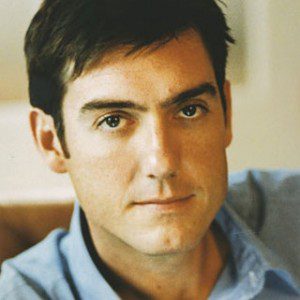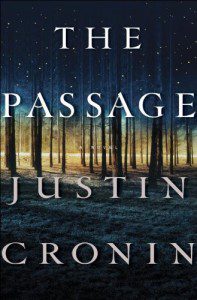Hardcover: 784 pages
Publisher: Ballantine Books (June 8, 2010)
ISBN-10: 0345504968
ISBN-13: 978-0345504968
If you are yearning for a novel to catalyze a week of incurable insomnia, trigger rushes of adrenalin, provoke tears of empathy, and cause overwhelming anguish in returning to reality, The Passage will deliver your wishes. A 766-page dystopian epic of speculative fiction, this first installment of Justin Cronin’s trilogy takes the vampire genre to new heights. Reminiscent of Cormac McCarthy’s The Road and Stephen King’s The Stand, it’s a vast, sweeping odyssey of vivid characterizations, poetic prose, engaging dialogue, and brilliant plot conceptualizations unveiling a pre-apocalyptic, apocalyptic, and post-apocalyptic world with gripping detail and breathtaking passages of beauty in a time of death and destruction.
Dismantling the popular concept of vampires as romantic beings sparkling in the sun (such as in the Twilight series), Cronin transmogrifies the supernatural creatures into biogenetically engineered killing machines possessed by a virus manufactured by the military in a top secret experiment entitled Project NOAH. The human race is on the brink of extinction from the insatiable thirst and violent murders the vampires (referred to as virals, smokes, jumps, and dracs) commit upon their accidental release onto society.
The virals are a product of the clandestine research of a Harvard microbiologist commissioned by the military in the year 2018 when America is engaged in consistent warfare, a gallon of gas costs $13, and terrorism holds the world in a persistent state of panic. The military’s nefarious plot is more maniacal than any reader could presume when we discover that the virals were previous death-row inmates chosen to serve in the third-stage trials of the experimental drug therapy. The military’s intent is to manufacture a race of “superbeings” who can master any skill in seconds and whose wounds heal nearly instantaneously.
Cronin describes them with vivid detail: “Peter had gotten used to the virals’ appearance but still found it unnerving to see one close up. The way the facial features seemed to have been buffed away, smoothed into an almost infantile blandness; the curling expansion of the hands and feet, with their grasping digits and razor-sharp claws; the dense muscularity of the limbs and torso and the long, gimbaled neck; the slivered teeth crowding the mouth like spikes of steel.”
Cronin’s ability to manifest a brave new world of mortal combat, death, and destruction is as masterful as his brilliantly crafted psychological development of each character (however major or minor) conveyed through intricate, interwoven narratives making each player fully human and heroic in their own way for the reader.
Prior to the release of the virals, we are introduced to an eccentric and usually gifted girl (who pulls at your heartstrings throughout this apocalyptic odyssey) named Amy, whose tragic mother abandons her in desperation to an African-born nun named Lacey. We also meet Wolgast, an FBI agent assigned to steal away Amy for the military-bankrolled Project NOAH. Deep backgrounds of these characters are created in the flawless 250 pages prior to the post-apocalyptic world in the second section of the novel, which audaciously opens a century later in 92 AV (After Virus).
America has then been ameliorated by the virals, however Cronin conjures a new one out of its ashes – a “colony” of human survivors in California, which relies on gargantuan lights to protect the citizens from the 42.5 million photophobic creatures. When the community realizes that the power source perpetuating the dusk-to-dawn illumination will soon die, a renegade band intrepidly ventures out into a world they know very little about. For instance, not a single one of them has seen the stars or the ocean.
Their quest to save the colony’s power source is elevated to a hope to reclaim the world and find other survivors after they come across Amy (who has lived for a 100 years yet whose body has been frozen as a preteen throughout time due to being a subject of biogenetic engineering during Project NOAH) who can psychically communicate with the virals. Unlike the other products of the military experiment, she protects – instead of destroys – humans.

Cronin leaps back and forth in time and diversifies his narrative with diaries, email messages, newspaper articles, maps, and legal documents.
Sustaining such an epic novel is a challenging endeavor, yet Cronin amazingly achieves the task and creatively unleashes the plot’s complexities while seemingly superfluous details eventually connect in surprising ways.
Quite obviously, the story is infused with biblical undertones with the title of the military experiment as Project NOAH, their intent to have the creations live for 950 years, and the original test subjects (the death row inmates) are 12 in number similar to Jesus’ apostles. The Passage, then, is fundamentally an investigation into the manifestation and annihilation of a flawed race. The characters stream-of-consciousness inquiries also have a sophisticated ambiguity as they question destiny and God (“Looking at the stars from the station roof, he’d felt something – a presence behind them, their vast immensity”) and debate the reasons for fighting to survive in a seemingly forsaken world.
Cronin’s sense of place, time, timelessness, and magnificent exploration of memories – memories folded and unfolded and twisted in time and of the self and Shadow self – are superior examples of Cronin’s bridges from genre to literature. He balances intellectual and action narrative with enough bravado to keep a diversity of audiences satisfied.
I could not recommend this masterpiece of a novel enough. Read it. It will deprive you of sleep yet shall ultimately inspire, challenge, enlighten, and amaze you.
~ Victoria Andrew,
The Literary Savant




To all you authors out there who are inspired to write so many great stories, why, oh why do you have to ruin them and yourselves by using such disgusting and degrading language and using our Savior’s name in such a disrespectful manner. It’s bad enough to hear it on the streets, do we have to read it in our books too? I have never in my entire life felt the need to use such language and have gotten my point across just fine. It’s no wonder the world is in such a mess if that is the only way people can talk any more. It breaks my heart and sickens me that we as a people have lowered ourselves to such a point. It’s time you understood that there ARE those of us who find that kind of language unnecessary and uncalled for. I just borrowed Justin Cronin’s book ‘The Passage’ from the public library and taking it back because I refuse to have books with that kind of language in my house. I’m sorry I won’t be able to read any of his future books because of it. I hope you all think seriously about this. Thankyou.